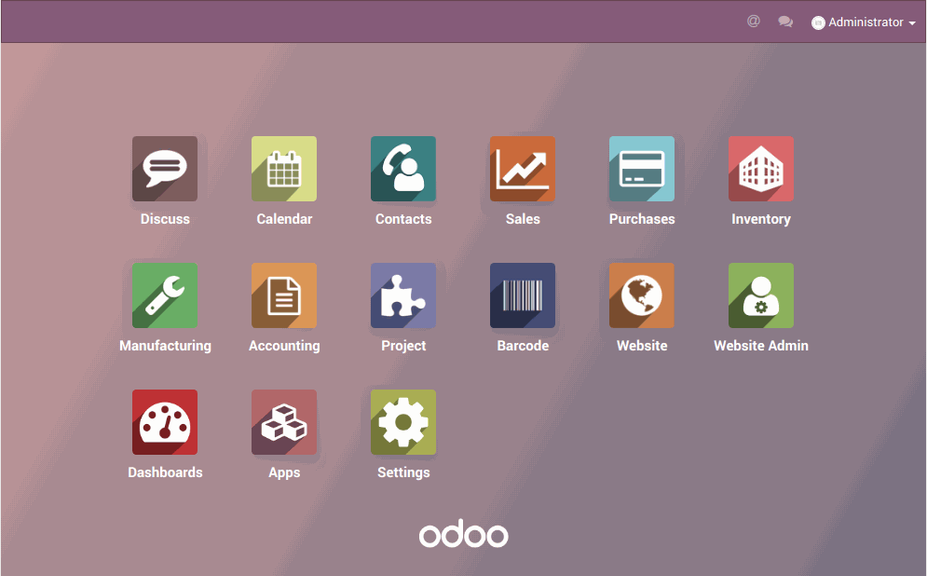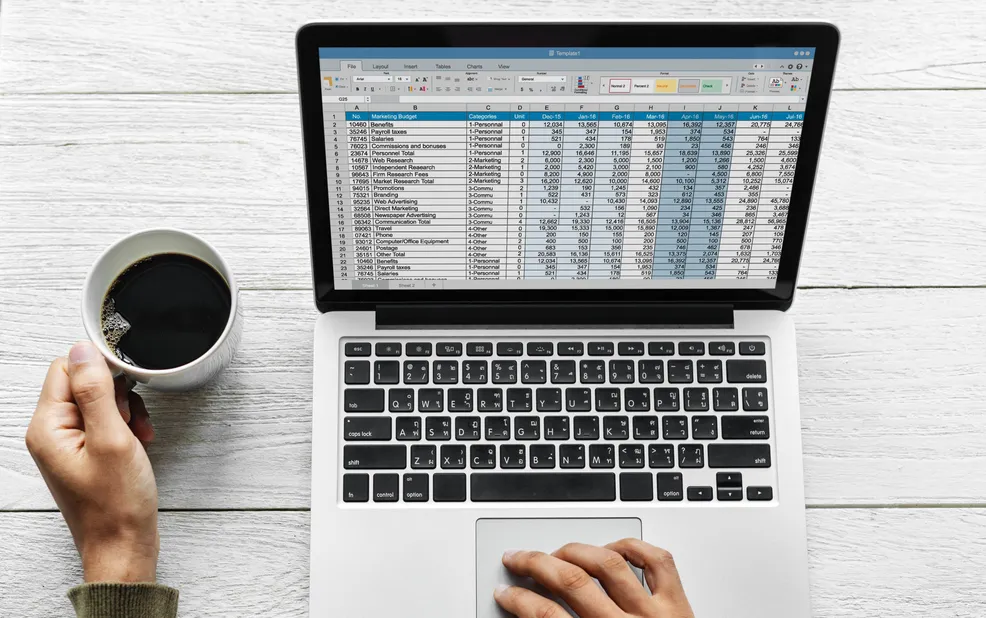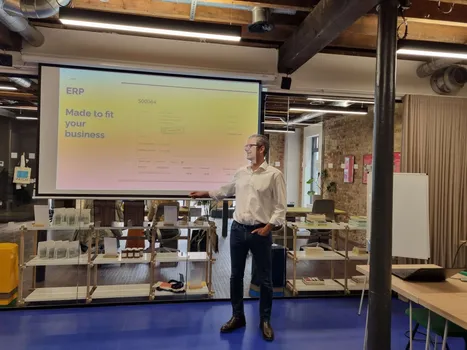Technology Advances and Old Habits Stay
Small and midsize businesses are more confident about competing with big corporations because of technology. AI, chatbots, machine learning - they leveled the playing field.
Yet, they still rely on spreadsheets. More than 750 million people worldwide use Excel to present business data to support their position. But, they’ll eventually reach a point where spreadsheets don’t make sense anymore.
The needs of a business change with growth. Basic accounting becomes insufficient and harder to keep up to date as the business becomes more complex.

Keeping track of information proves to be a big task that demands a lot of your time.
Tracking performance details and new opportunities with spreadsheets will result in redundant data, biased insights, and complicated consolidation efforts.
Back when you started your business and managed a simple operation, it was easy to monitor your company with a few spreadsheets. But as the business grows, so do the number of spreadsheets and problems:
- Can’t provide insights in real-time
- Data analytics pile up and you’re stuck with massive bottlenecks for decision-making
- With manual data checks and processing, it’s easy to miss data entry errors and redundancies
- Information focuses on the past, not on the near or long-term future
Modern ERPs significantly decreased the dependence on IT support. Applications like Dropbox show how workers are already familiar with cloud-based technology. So, learning a new way of doing things shouldn’t be a big problem.
Software of today can anticipate and automate actions. There’s no need to waste IT teams’ time or spend more money than you have to on training.
You can’t keep delaying ERP adoption in your company. You’ll lose competitive advantages and new opportunities.
Want to Give Your Business a Fighting Chance? Try Odoo
Why are Spreadsheets Still Used?
Part of the resistance to an ERP installation is from inside most companies. More than fear of change, employees have deep-seated habits when approaching business processes. In other words, most of that resistance comes from ongoing dependence on spreadsheets to solve problems.
Legacy systems used to be more inflexible and employees had to find workarounds. They found the solution in a spreadsheet.

A common problem with ERPs was that employees had to call the IT department every time they encountered an issue.
This would take up more time, delay operations and could increase costs. So, using spreadsheets became the solution. It was faster and cheaper.
The IT teams spent a lot of time helping employees use ERP software
Spreadsheet fixes are like duct-taping cracks on a wall. It’s a ‘fix-now-and-deal-with-it-later-mentality’. This trend brings failure to the business processes.
They’re self-invented solutions that prevent innovation. Nowadays, ERP systems solve the problems employees use spreadsheets to fix. But, even after an ERP is in place, they’re still used. Employees end up not taking full advantage of ERPs.
And, if a company wants to implement an ERP, spreadsheets will get in the way of it.
Why Spreadsheets aren’t the Best Solution
Spreadsheets can be useful for a quick snapshot of data. But you’re just collecting data, not analyzing it. In fact, businesses spend most of their time collecting and inputting data.
Spreadsheets were designed for individuals, not for collaboration. This probably already happened to you at least once: You spend hours inputting new data into a spreadsheet and use that information to make a decision, Only to have someone else doing the same. Now, the data doesn’t make sense and your recommendation was based on outdated information.
Excel and other spreadsheet programs have risks. When managing large volumes of data, there isn’t a way to effectively audit and control data.
Excel is usually the cause of big mistakes that wouldn’t happen with an ERP. Unfortunately, Excel is still used today by companies who would benefit more from an ERP.
It’s understandable that spreadsheets are more familiar and simple to use. This isn’t enough reason to keep them as your default method for managing data. Human errors are widespread and no one is safe from them:
- 88% of spreadsheets have errors, according to the University of Hawaii.
- Coopers and Lybrand say 90% of all spreadsheets with 150 rows or more have errors.

Stats like these prove spreadsheet information is rarely accurate, can have errors and be outdated.
These mistakes lead to poor financial decision making, inaccurate data, and budget miscalculations. The JP Morgan “London Whale” trading scandal pointed at spreadsheet error for their $6 billion trading loss.The European Spreadsheet Risks Interest Group was created to avoid these kinds of mistakes. But, as you see, they still happen frequently.
Another issue is that spreadsheets are isolated from the rest of the organisation. You have to manually create sales orders from quotes in Excel. To update your inventory, you have to manually update information every single time, sheet by sheet.
Spreadsheets go back and forth by email between multiple people, making it hard to know which is the updated version. You end up with a lot of copies of the same file. A shared folder like Google Drive or Dropbox doesn’t seem to make the problem go away either.
Using Dropbox, you no longer have to worry about multiple versions of the same file and you have more control over who sees and edits those files. But, with Dropbox, only one person at a time can edit a file. And Google Sheets don’t have all the features offered by Excel or offer library functions.
Need Help on Another Topic? Browse Here
How does Switching to an ERP System Help me?
ERP systems are sophisticated and smart solutions. You can have analytics, optimized core processes, data management and a lot more. You can choose to have it as a software as a service (SaaS) or a cloud-based system. They have low monthly subscriptions and some are free.
With ERPs you have a lot of options to choose from:
- There are solutions made for specific markets.
- Some are integrated suites to which you can add new modules as you grow.
- A lot of them are available on mobile devices as well, so you can access information about your company in real-time, wherever you are.
Digital transformation is becoming an indicator of the possible success of a business in the future. Innovation includes both technical strength and technical functionality, that are brought together by an ERP platform.

When new opportunities appear, an ERP can help you change things (big or small) to get ahead of the competition. Not to mention, a more cost-effective strategy for accelerated growth lies in running operations with information in real-time, with scalable analytics and data management.
Want to Discuss Your Unique ERP Needs?
Odoo ERP system
So, what can you expect when starting to use Odoo ERP systems?
An ERP has automated tasks, you can easily search for data and you can share it between departments. You won’t have double data entry or loss and you can see your business processes in real-time. Your company will have critical insights into its performance to improve your decision-making capabilities.
A big pile of spreadsheets can’t help you with that.
When providing ERP training, don’t do it all in one sitting. Give frequent short training sessions explaining the benefits of ERP and replacing the reliance on spreadsheets. Make sure your employees understand how ERPs can improve the quality of data, efficiency, and workflows.






